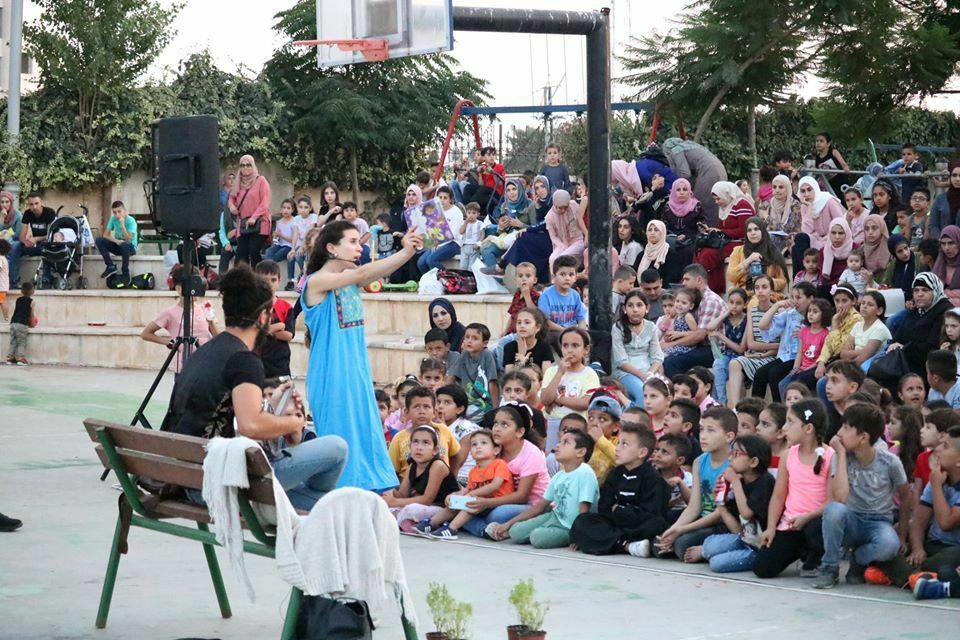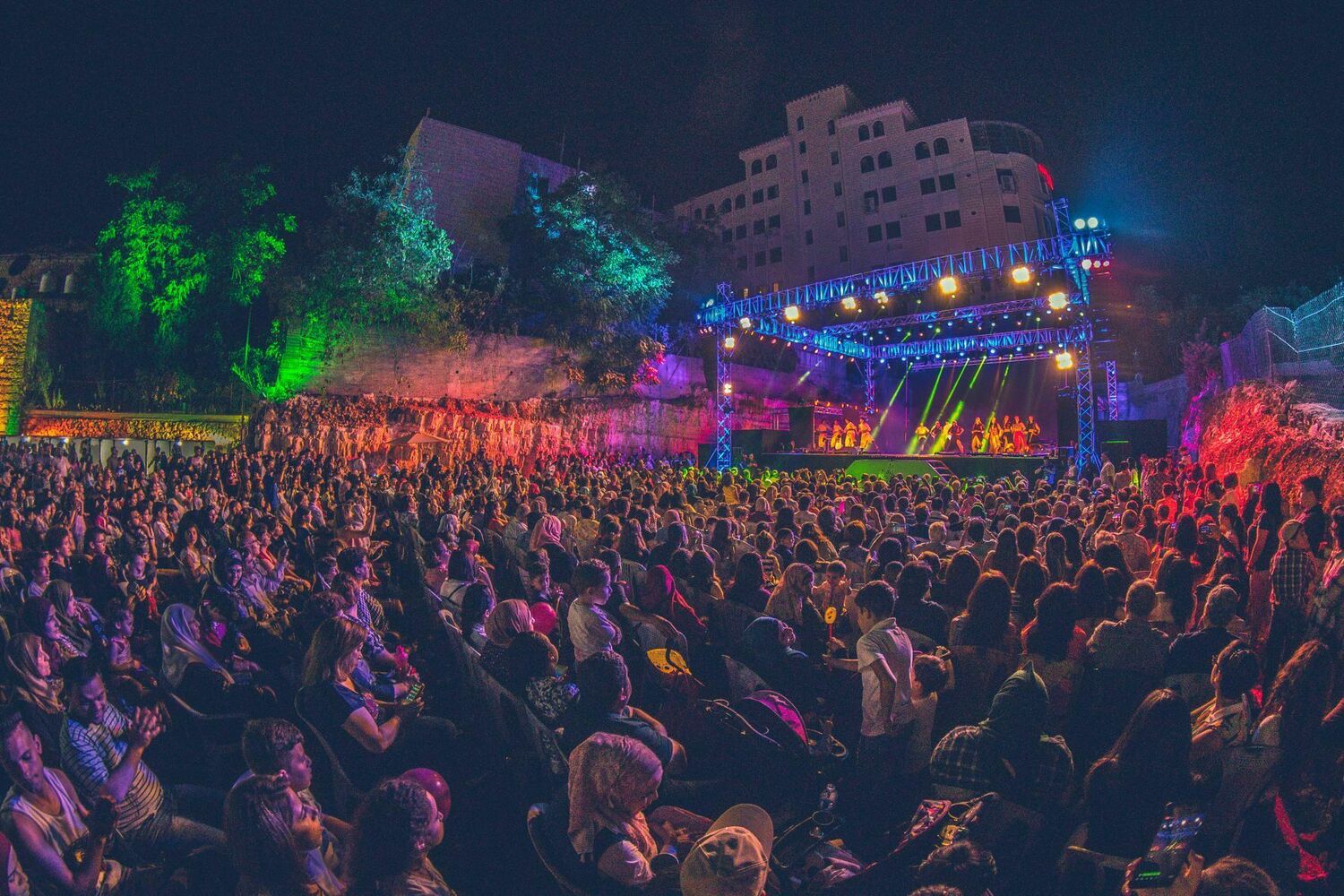Palestinian Territories
Ramallah Municipality
01-01-2022
Since 2022
 16th.
16th.
"Culture is Integral to Resilient and sustainable City" policy document has been elaborated through a consultation exercise with UCLG, involving contributions from citizens, artists, cultural professionals, civil society organisations, businesses, national public institutions, international agencies, donors and local government representatives through workshops, individual meetings, focus groups and a survey to analyse the realities of cultural sector in the city of Ramallah.
The basic principle of this Cultural Policy is the affirmation of everyone's right to take part in cultural life. Believing that rights will only be effective on the ability of public, private and civil society stakeholders to work together, addressing imbalances and obstacles, developing proactive policies and programmes and generating an enabling environment for individual and collective creativity and cultural participation.
The main major goals of the policy are to achieve a city that:
138 inhabitants of the Ramallah Municipality
The city of Ramallah launched in November 2017 the Resilient Ramallah 2050 strategy with a vision of the city: optimistic, sustainable, Inclusive, proud of our own culture and in control of our own destiny. The strategy specified in relevance to the city's analysis, three strategic directions reflected in 37 actions, where culture was at the heart of this strategy. The Resilient Ramallah 2050 strategy revealed the necessity of a cultural policy for the city as part of the strategic planning for Ramallah as a resilient city.
At that point, Ramallah Municipality did a survey to collect data and map the cultural scene in the city as a step before organising workshops, focus groups and meetings with the main actors in the scene. The municipality also started to communicate with UCLG to cooperate as a policy consultant with the cit. At the same time, the city started to contact local artists, cultural organisations, educational organisations, representatives from the civil society organisations, public bodies, cultural committees from the city council and the mayor to put things all together to share the process with them in advance.
The Palestinian cultural policy model is a non-systemised model predominantly oriented to the nonprofit sector. The model has limited grassroots orientation and works well in the central part of Palestine and in major cities. At the national level, the administrative functions of culture are carried out by the Ministry of Culture which doesn't fill the necessary and required needs of the cultural sector. The Ramallah Municipality believed in the decentralisation of cultural policy and in culture as a major pillar of development, where social development is connected to culture.
The municipality managed to identify strategic interventions in culture on a city level, a process that started officially in 2010 in a conference organised on the Role of Local Governments followed by another conference in 2011 under the title of "Ramallah and its Cultural Development". Stakeholders from all of Palestine and relevant public sectors met to discuss how the role the Ramallah Municipality could potentially play in the shaping of cultural policy. These conferences were followed by a series of specialised meetings and sessions that worked on a coherent cultural policy for the city of Ramallah in partnership with all stakeholders operating in the scene.

The strategic interventions at that time had different elements among which are: assisting legislators in formulating the laws that aim at the preservation of tangible cultural heritage, presenting public spaces as a main venue of cultural and social events, emphasising the necessity of securing semi-public funding for art and culture in a country where most of the funding to this sector comes from the donor community, introducing the concept of wide and horizontal and grassroots partnerships, expose the general audience into different forms of art and culture, reutilisation of educational tax (from solely schools construction to include also the support of educational and creativity projects), linking art and culture to income generating vocations and allowing for the needed training and possible absorption on the market system and the promotion of cultural diversity and social cohesion in the city of Ramallah that hosts populations from all over Palestine and also from Palestinian returnees.
These interventions at the city level were part of the discussions during 2015 and 2016 during the participatory process of creating "Resilient Ramallah 2050" strategy that was in support of 100 Resilient Cities network. Part of the actions of the strategy had a specific focus on cultural development, which opened the discussion to officially adopt a written cultural policy for the city late 2019. In March 2022, with the cooperation of UCLG, the city adopted an official participatory Cultural Policy "Culture is Integral to Resilient and Sustainable City".
The policy is translated into priorities and actions through a dialogue with stakeholders, measures are linked to the actions and the policy will be evaluated. Every four years the policy document will be reviewed by the city and stakeholders in reference to specific measures and priority activities identified to achieve strategic, long term, and short term goals.

The policy has a steering committee from the city itself, formed by the Culture and Social Development Director, the City Director and representatives from different stakeholders who also evaluate the progress of the actions on a yearly basis and contribute to the evaluation of the policy every four years. The policy also has a steering committee from educational and cultural operators in the city reflecting different sectors and fields in culture. 138 citizens participated in the workshops of creating the cultural policy which included: the Mayor, three city councillors, three neighbouring municipalities, local cultural managers, local artists from different domains, representatives of youth clubs in the city, the Ramallah Youth City Council, women associations, representatives of elderly homes, representatives of disabled organisations, representatives from refugee camps, Ramallah schools, journalists, representatives from the private sector, representatives from the ministry of culture, environment, education and tourism and antiquities, representatives from foreign cultural centres, academics, environmental activists, representatives from UN Habitat/ Ramallah Office, representatives of UCLG, and the expert Chrissie Tiller from the UK - who worked with the Ramallah Municipality in 2018 on Ramallah Resilient Strategy in Culture and Education.
The workshops were led by representatives from the local community to guarantee the subjectivity and openness during the discussions. The participants, either policy makers from different fields or representatives of civil society organisations or the independent artists and activists in culture and arts, will be the facilitators to adapt and execute the values of the policy in their structures and their practices. This holistic approach is to guarantee inclusion and representation of all citizens, classes and community groups in the city.
The Cultural Policy for Ramallah is for the city and its citizens as a whole rather than solely for the local government where ownership and commitment is shared. Several international agendas provide inspiration for this Cultural Policy. Agenda 21 for Culture, the UN's 2030 Agenda for Sustainable Development, including the Sustainable Development Goals (SDGs), are agendas which establish a set of global goals that can be best achieved through the strengthening of culture. This is particularly visible in areas like the fostering of education and learning that recognizes cultural diversity and culture's contribution to sustainable development (SDG target 4.7), the promotion of creativity and innovation (8.3) and of sustainable tourism that promotes local culture and products (8.9), the protection of cultural and natural heritage (11.4), the provision of universal access to green and public spaces (11.7), and the enhancement of public access to information (16.10). Beyond these, objectives and commitments included in the cultural policy can contribute to the achievement of many other SDG targets.
Municipalities in Palestine are not obliged by law to work in culture, but the city of Ramallah years ago started to consider culture as a major component of sustainable development, and this was the force to specify its role in culture and to concentrate on the concept of decentralisation of cultural policy through observation, discussions and, workshops and conferences with the main stakeholders.
By adapting a written cultural policy and allocating funds for culture, the city became a leading model for other municipalities in Palestine, and the city confirms its commitment for the development of culture and highlighting it as a priority and a main service that should be provided to the city's citizens and actors.